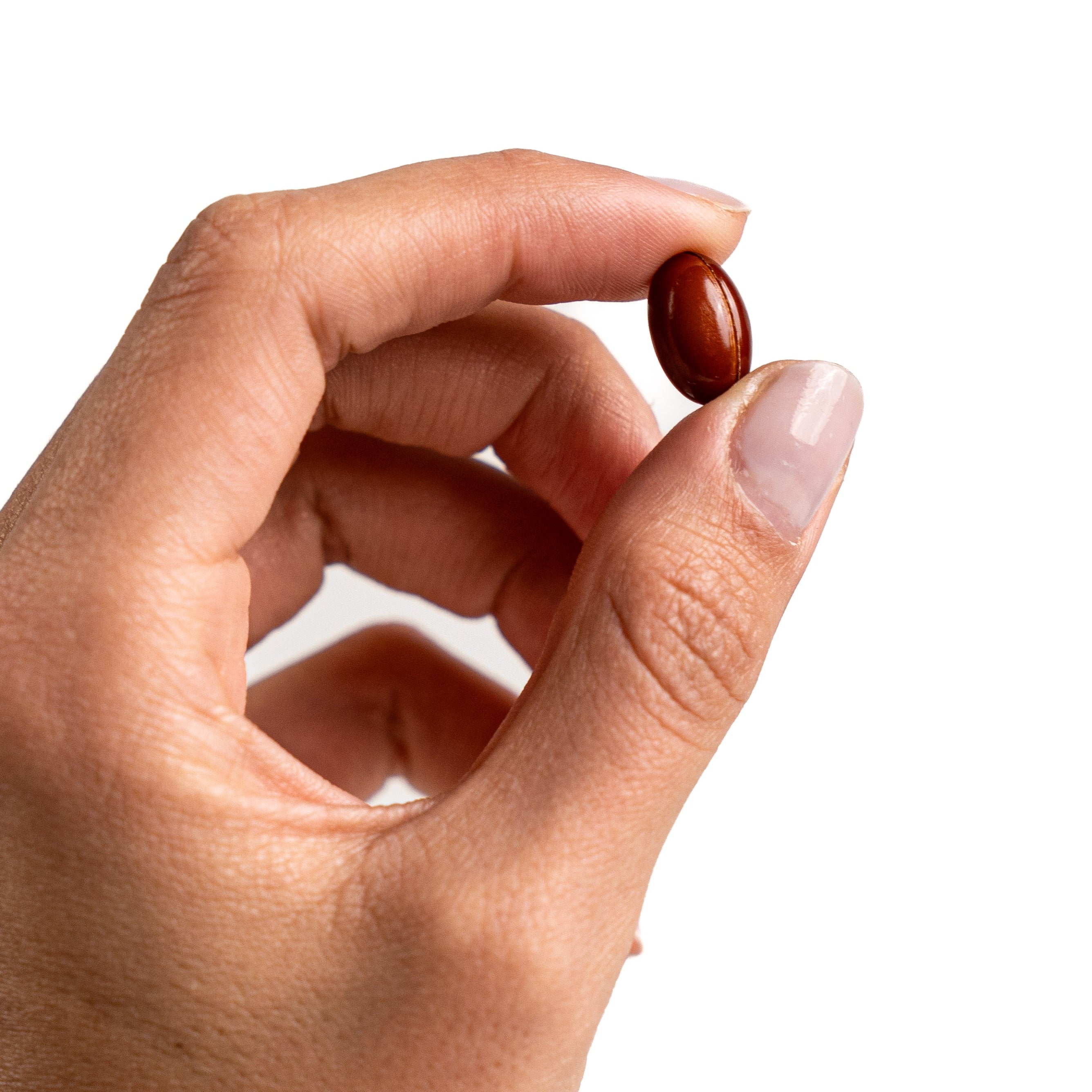Estrés Oxidativo: ¿Qué es y Cómo Puede Afectar tu Fertilidad?
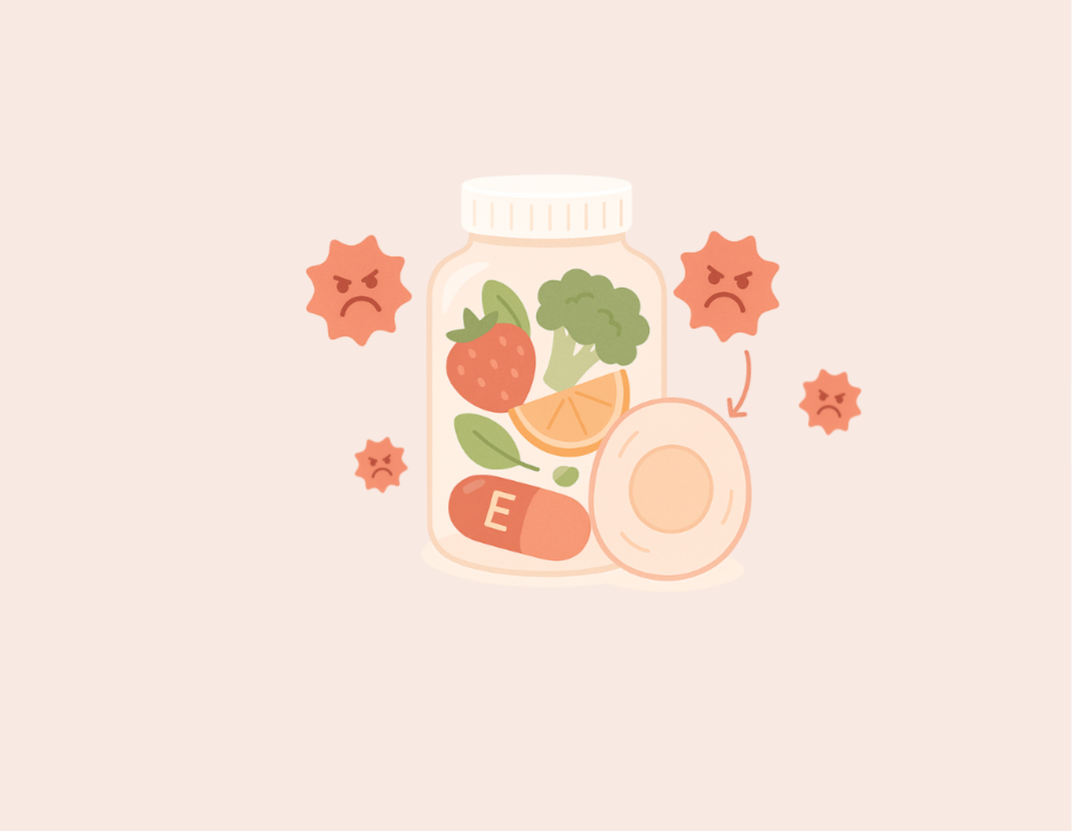
0 comments

On the path to motherhood or fatherhood, we explore many factors that can influence our ability to conceive.
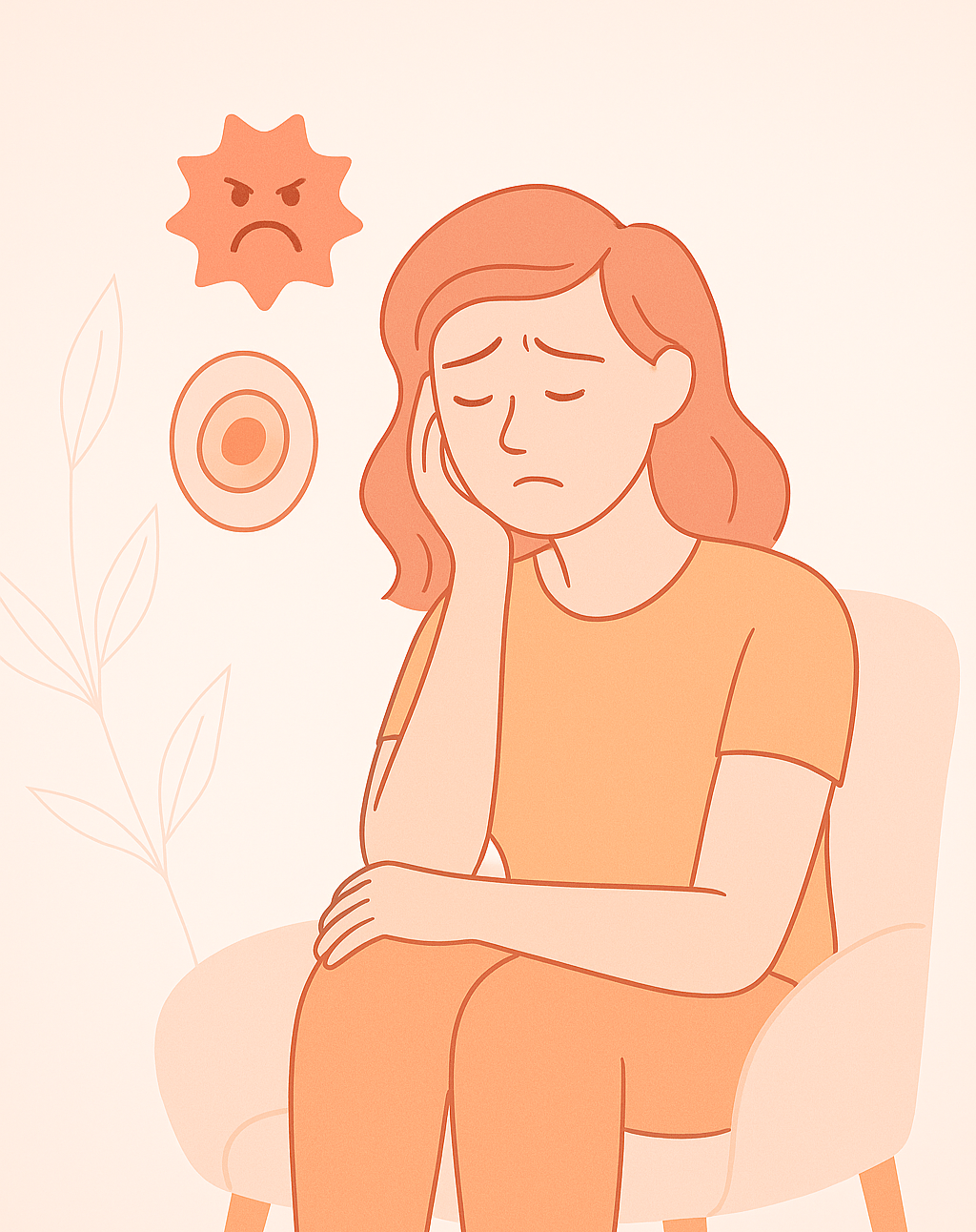
We often think about age, lifestyle, or possible medical conditions, but there's a silent and lesser-known factor that can have a significant impact: oxidative stress. If you've heard of it or wonder how environmental factors or your lifestyle can affect your chances, this article is for you. Here we break down what oxidative stress is and why you should pay attention to it if you're thinking about the health of your eggs and your fertility in general.
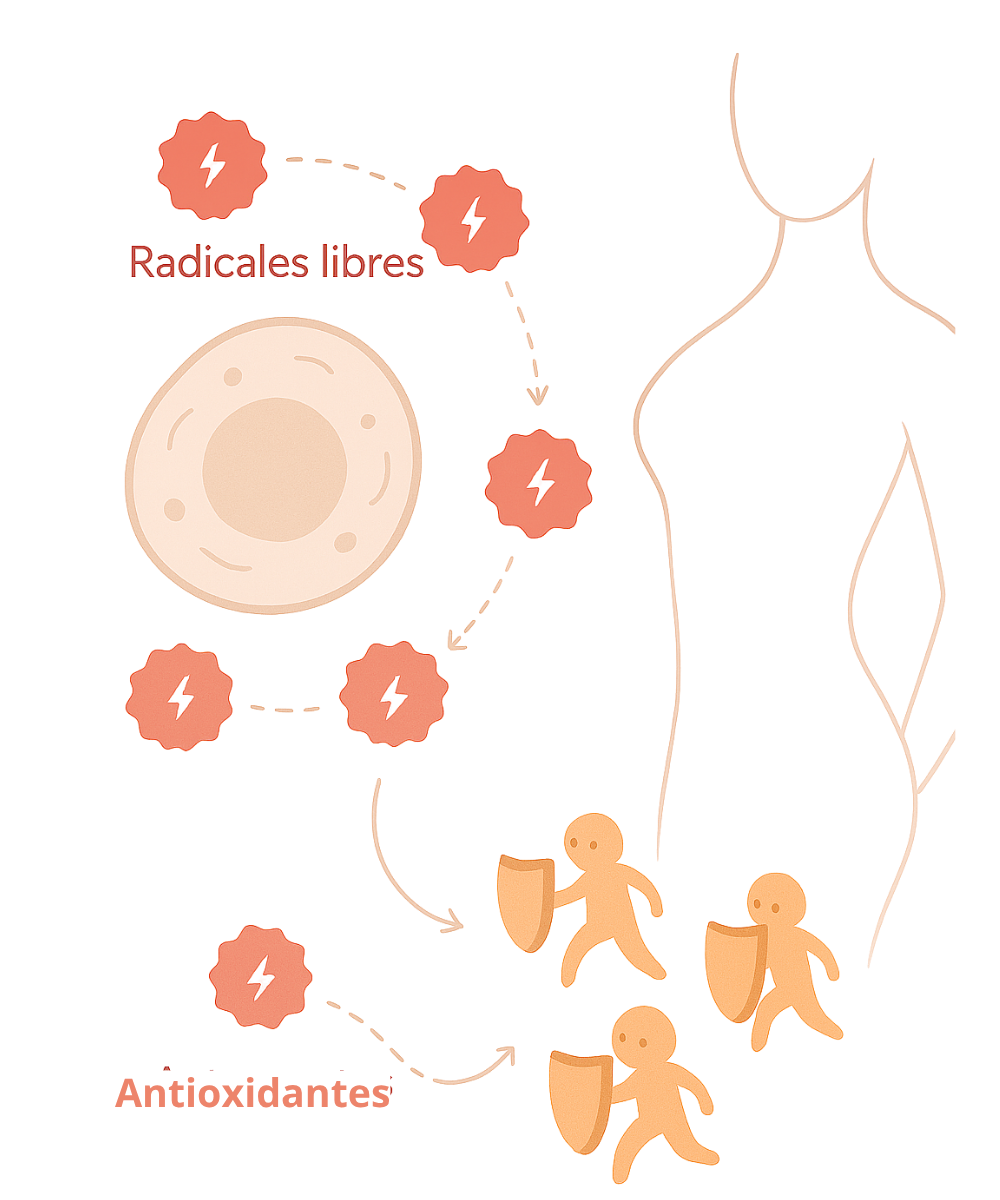
What is oxidative stress? Understanding the concept.
Imagine your body as a perfect machine, constantly working to maintain balance. Inside that machine, there are processes that generate molecular "waste" called free radicals. These free radicals are unstable molecules that, if left unchecked, can damage cells.
Fortunately, your body also produces its own "defenses": antioxidants. Antioxidants are like little guardians that neutralize free radicals, preventing them from causing damage.
Oxidative stress occurs when there's an imbalance: the amount of free radicals exceeds your antioxidants' ability to neutralize them. It's like waste accumulating faster than the cleanup crew can handle it. This imbalance leads to widespread cellular damage.
This imbalance can be caused by a variety of internal and external factors to which we are constantly exposed. Some of the most common causes include:
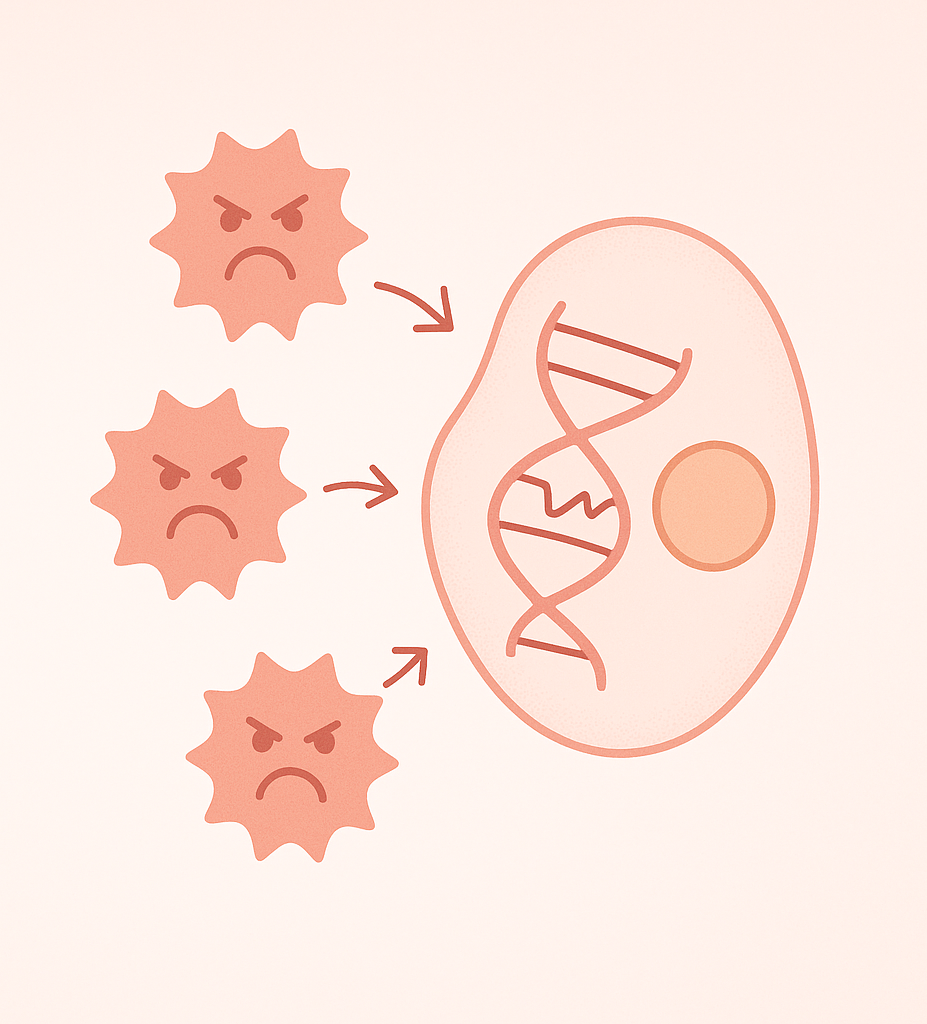
How does oxidative stress affect your cells?
When free radicals are not neutralized, they can attack essential components of your cells, such as proteins, lipids (fats that form cell membranes), and, more worryingly, DNA (your genetic material). Think of it as a kind of "oxidation" or "corrosion" at a microscopic level. This damage can prevent cells from functioning correctly, accelerate their aging, and, in severe cases, even lead to cell death.
The Direct Impact on Reproductive Health
Now, what does all this have to do with fertility? Reproductive cells, both eggs in women and sperm in men, are particularly sensitive to damage caused by oxidative stress (Source: Ginemed, barcelonaivf.com, Dr. Jose Martin Vallejo). This is due to several reasons, including their high metabolic activity and the complexity of their structure and function.
Oxidative stress can compromise the health, viability, and function of these cells, which are essential for reproduction.
It is important to understand that, although oxidative stress is not the only cause of fertility problems, it is a significant contributor that is often overlooked.
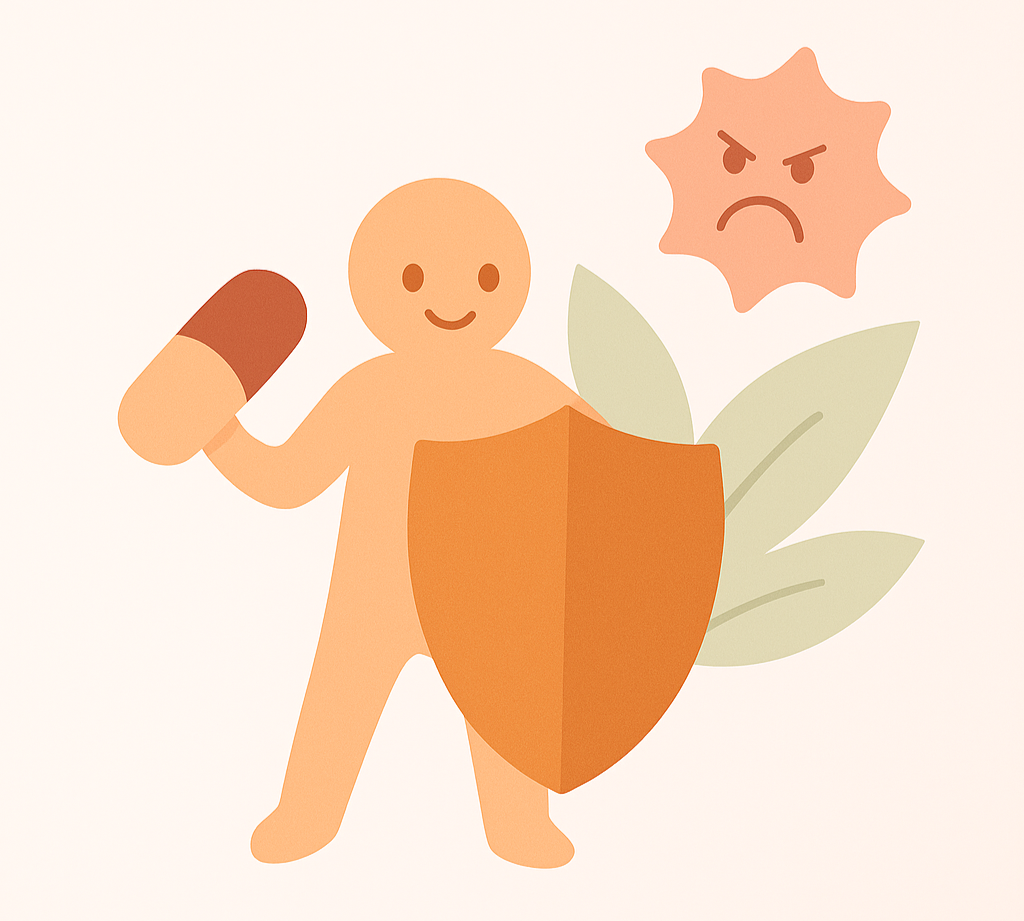
Can we protect ourselves? The role of antioxidants
The good news is that our body has a defense system: antioxidants. And we can do things to strengthen it. Antioxidants act by donating electrons to free radicals, stabilizing them and preventing them from damaging cells.
Obtaining sufficient antioxidants through diet and, in some cases, supplementation, can help counteract the excess of free radicals and reduce oxidative damage throughout the body, including reproductive cells. Substances such as Vitamin E have been studied for their potential role in improving oocyte quality (Source: Assisted Reproduction, Minifiv).
Consume a diet rich in fruits, vegetables, nuts, and seeds. They are excellent sources of vitamins (such as C and E) and minerals with antioxidant properties.
Practice stress management techniques such as yoga, meditation, mindfulness, or spending time in nature. Chronic stress can increase oxidative stress (Source: Saba, Helloclue).
Reduce or eliminate tobacco and excessive alcohol consumption. Avoid exposure to pesticides and pollutants whenever possible.
Regular physical activity is beneficial, but strenuous exercise without adequate recovery can temporarily increase oxidative stress. Find a balance.
If you have concerns about your fertility, talk to a doctor or reproductive specialist. They can assess your individual situation and offer personalized guidance, including the possible need to evaluate oxidative stress levels or consider supplements.

Ready to protect your eggs from oxidative stress?
Start today with antioxidants designed for your fertility.
"Throughout my 24 years of experience in reproductive medicine, I have observed positive evidence of the impact that certain nutrients and micronutrients have on the reproductive process."
Excellence Fertility Woman is the perfect supplement when you decide it's time, when you're trying to conceive, or when you're undergoing assisted reproductive treatment. Our experts recommend Excellence Fertility for any woman who wants to increase her chances of getting pregnant, improve embryo quality, and enhance assisted reproductive treatments.
Our experts recommend taking Excellence Mujer as soon as you decide you want to start trying to get pregnant and at least three months before undergoing fertility treatments.
It's two capsules a day. For better absorption, we recommend one capsule with breakfast and the other with lunch.
Start taking it at least three months before the assisted reproductive treatment, because in the three months of egg development it helps them mature in an optimal environment with a good supply of energy to process the chromosomes correctly.
In men, three to six months is recommended because although new sperm are constantly produced inside the testicles, the complete regeneration process takes approximately 2 to 3 months.
Excellence Woman has been formulated with a blend of powerful antioxidants, probiotics, and vitamins that give your fertility a boost.

0 comments
